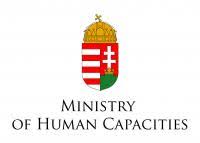Transfer Effect
”It is a general observation that these sorts of schools produce better results in all other subjects too.” (Inauguration of the New Building of the Kecskemét Primary School – Speech 1964 – Bulletin of the International Kodály Society 1985/1) (A kecskeméti Ének- Zenei Általános Iskola új épületének felavatásán – Beszéd 1964)
”It is undeniable that daily music-making and singing spiritually refresh the children[...]” (Self-Portrait 1965) (Önarckép 1965) (Translation by the author of the publication)
”[...]music has some kind of a stimulating power, and makes the mind more receptive to all other subjects as well: more vivid, more focused, refreshing body and soul.” (Music Education, Primary Schools with Music – Radio Interview for BBC by William Murphy 1965) (Zenei nevelés, zenei általános iskola – Nyilatkozat 1965) (Translation by the author of the publication)
”[...]music teaches more than music alone. [...] singing liberates, encourages, cures inhibition and shyness. It helps concentration, improves physical and spiritual disposition, inspires one for work, and makes us more fit for it; it makes one accustomed to discipline and attention. It affects the whole body, not only certain parts of it. [...] It develops community spirit. It develops the sensibility for music which is present in everybody in embryo, thus providing the foundations of musical knowledge which, in turn, will make people’s lives richer and more beautiful.
[...] These children are better at arithmetic because numbers for them are not abstract ideas; they feel them in their body together with rhythm. They read fluently ahead of the rest because they feel and convey to others the organic musical form in a sentence. Their handwriting is better and more exact because writing music makes them accustomed to paying closer attention, since a dot slightly out of place would signify a different note. They learn correct spelling faster and their sense of graphics also improves. Finally, their self-esteem grows; [...] There is no more influential motive of the child’s human development.” (Educational Bureaucrats! Let the Children Sing! 1956 – Zoltán Kodály: Writings on Music Education 2019, published by Liszt Academy) (Tanügyi bácsik! Engedjétek énekelni a gyermekeket! 1956)
”learning music [...] facilitates arithmetic through rhythm, fluent reading through melody, as well as beautiful handwriting and spelling. Musical notation habituates greater precision, develops a graphic sense; singing teaches a sharper observation of syllables, a more accurate pronunciation, a more correct articulation; good breathing, a confident demeanor, a more developed hearing, increased physical health [...], well-being, a cheerful mood. Countless additional benefits, all increasing the working spirit.” (A Small Report – Lecture at the Hungarian Musicians’ Association 1962) (Egy kis számadás – Előadás a Magyar Zeneművészek Szövetségében 1962) (Translation by the author of the publication)
”Every single element of music on its own is also a valuable educational tool. Rhythm develops attention, concentration, self-assurance and the ability of internalized retention. Melody reveals the world of emotions. Dynamic changes and timbre sharpen our ears. Finally, singing is such a multi-sided physical function that, perhaps to someone for whom the education of the soul were not of any importance, the effect of singing on physical education is also immeasurable. Its health benefits are well-known; specific books have been written on this subject.” (Music in Kindergarten 1941) (Zene az óvodában 1941) (Translation by the author of the publication)
”[...]the fear of overload. However, a well-guided music class is not a burden, but rather a source of refreshment, serenity and good humor. One can observe any number of times young children leaving truly energized and happy after music class.” (The Musical Life of a Town in the Provinces – Lecture in Nyíregyháza 1937) (Vidéki város zeneélete – Előadás Nyíregyházán 1937) (Translation by the author of the publication)
”[...]several teachers have noticed that there is a close correlation between spelling and the experience of singing! A better singer has better spelling. It is understandable: pronunciation in singing is increasingly addressed, and in this way, the ear will become more receptive to subtle shades, also in regular speech. More precise sound notions lead the children to more accurate writing. Thus, here is an impact of singing, not yet sufficiently revealed and implemented, on language proficiency.” (Comments of the Authors on the Critique of the ”So-Mi” Primary School Music Textbooks 1943) (A szerzők megjegyzései a „Szó-Mi” népiskolai énektankönyv bírálatára 1943) (Translation by the author of the publication)
”For me the most significant lecture was that given by Klára Kokas who, by way of observing parallel groups, proved by experiment that children who grow up with music and singing will already develop better both physically and mentally in kindergarten than those who do not sing, or sing only a little. [...] we [...] improve the whole person through it.” (About the Budapest Conference of ISME – Interview 1964 – Zoltán Kodály: Writings on Music Education 2019, published by Liszt Academy) (Az ISME budapesti konferenciájáról – Nyilatkozat 1964)
Technology
”Technology cannot be an enduring enemy of music. After all, its inventions related to music have created devices never imagined for the dissemination of music. It is only a matter of time and education, that all these devices will serve true, valuable art.” (On Béla Bartók – Presidential Opening Address at the Commemorative Session of the Bartók Memorial Committee 1956) (Bartók Béláról – Elnöki megnyitó a Bartók Emlékbizottság díszülésén 1956) (Translation by the author of the publication)
”In the entire curriculum intellectual development still predominates at the expense of emotional development. We train ’calculators’, who become superfluous by electronic calculators. We train narrow-minded people, who cannot get enthusiastic about any virtue and beauty. The one-sided, utilitarian cultivation of technology and natural science can lead to the wasting away of emotional life and artistic sensibility.” (A Small Report – Lecture at the Hungarian Musicians’ Association 1962) (Egy kis számadás – Előadás a Magyar Zeneművészek Szövetségében 1962) (Translation by the author of the publication)
”another thing is the matter of mechanizations. Many people are satisfied with the gramophone; and never listen to live music.” (Kodály’s original English) (Roundtable Discussion – Congregation of the Arts, Dartmouth College, Hanover, New Hampshire 1965 – Zoltán Kodály: Writings on Music Education 2019, published by Liszt Academy) (Dartmouth kerekasztalánál – Felszólalások 1965)
”[...]mechanical music only in a case of necessity. It gives a false impression, even the most perfect stereo device does not replace any modest live music.” (Comments on the New Curriculum 1961) (Megjegyzések az új tantervhez 1961) (Translation by the author of the publication)
”Our age of mechanization leads along a road ending with man himself as a machine; only the spirit of singing can save us from this fate.” (Kodály’s Preface to Music Education in Hungary, Corvina Press 1966 – Zoltán Kodály: Selected Writings, Corvina Press 1974) (Zenei nevelés Magyarországon – Előszó 1966)
”The biggest problem is the reconciliation of advanced technology with humanity. As technology moves ahead, and takes over more and more work from people, human activity decreases. That's why, there is a danger, instead of singing oneself, of pressing a button and listening to how others sing.” (American Experiences – Statement 1966) (Amerikai tapasztalatok – Nyilatkozat 1966) (Translation by the author of the publication)
”[...]this is just the danger of the great record and television culture, because it kills impulse and activity [...] that we will awaken.” (Kodály’s original English) (Music Education, Humane Education – Interview by Margaret Fitzsimmons Shilkin, at San José State University, California 1966 – Zoltán Kodály: Writings on Music Education 2019, published by Liszt Academy) (Zenei nevelés, embernevelés – Nyilatkozat 1966)
”To utilize all the inventions of technology if it helps and facilitates our task, but not to the extent of impairing our own activity and humanity.” (American Experiences – Statement 1966) (Amerikai tapasztalatok – Nyilatkozat 1966) (Translation by the author of the publication)
The International Adaptation of the Kodály Concept
”It is a great joy for us if others start on a similar path. Through this many different nations also become closer to one another, and take a small step towards general, mutual understanding.” (Two Music Conferences in Budapest 1964) (Két zenei konferencia Budapesten 1964) (Translation by the author of the publication)
”[...]slowly we built up the system which you have seen this morning as demonstrated by American boys, which proves that these schools are not only for Hungarians, but for everybody.” (Kodály’s original English) (Roundtable Discussion – Congregation of the Arts, Dartmouth College, Hanover, New Hampshire 1965 – Zoltán Kodály: Writings on Music Education 2019, published by Liszt Academy) (Dartmouth kerekasztalánál – Felszólalások 1965)
”[...]in every country, of course, there are people and they are all equal. Each has the same faculties and the same abilities.” (Kodály’s original English) (Music in Public Education – Radio interview by Richard Johnston, CBC, Toronto 1966 – Zoltán Kodály: Writings on Music Education 2019, published by Liszt Academy) (Iskolai énekoktatással az egyetemes zenekultúráért – Nyilatkozat 1966)
”In my opinion, without particular effort, everyone can be taught of the elements of music”. (Music in Public Education – Radio interview by Richard Johnston, CBC, Toronto 1966) (Iskolai énekoktatással az egyetemes zenekultúráért – Nyilatkozat 1966) (Translation by the author of the publication)
”If the system is to be adopted in foreign countries, each country must add its own motivic and musical background. The chief thing is a very slow but consequent progress, beginning with the most simple features of music. Surprisingly quickly children are able to sing in two and three parts, because a feeling of harmony is developed very quickly if somebody takes the trouble to manage it. The chief hindrance is that the general schools give too little time for that”. (Kodály’s original English) (The Responsibilities and Opportunities of the Musician-Educator – Interview by Ernő Dániel at the University of California, Santa Barbara 1966 – Zoltán Kodály: Writings on Music Education 2019, published by Liszt Academy) (A zenei nevelők Santa Barbara-i konferenciája előtt – Nyilatkozat 1966)
”we must set out from their own, personal inventory of songs, [...] And then enlarge it slowly to other peoples’ music. Because the great classics are always a melding of different peoples. Mozart was a melding of German and Italian music, and Bach also, and every great composer is so: even if he is a representative of a certain nationality he has every other quality emerging, country imagined and has in himself melded all the music possible all over the world.” (Kodály’s original English) (Music Education, Humane Education – Interview by Margaret Fitzsimmons Shilkin, at San José State University, California 1966 – Zoltán Kodály: Writings on Music Education 2019, published by Liszt Academy) (Zenei nevelés, embernevelés – Nyilatkozat 1966)
”In recent years our international guests have continuously visited these schools, admiring the results and studying the curricula, with the intention of setting up similar schools in their own countries.
During the many years of struggle in establishing these schools, we never thought of other countries. We were only driven by the intention to improve the state of music in Hungary, in order to extend the blessing of music to as many people as possible. However, it seems that numerous other countries struggle with similar concerns: [...] To increase severalfold the audience for classical music, which appears to be an urgent need everywhere.
If our efforts and experiences prove to be useful to others as well, we can only be pleased. If for nothing else, because it also helps mutual understanding, and perhaps it takes us one step closer to the desired brotherhood of mankind.” (Musical Instruction and Education 1966) (Zenetanítás és nevelés 1966) (Translation by the author of the publication)
(relative solmization:) ”This is indeed impossible for the French and Italian, who are used to the fixed ’do’. However, there are other elements they can take from our method in order to improve their own.” (Conversation with Mrs. Mária Kőrösi Nyéki at the Phonothèque Nationale in Paris 1965) (Párizsi beszélgetés, Phonothèque nationale 1965) (Translation by the author of the publication)
Concluding Thoughts
”Music has a civilization-creating mission: it contributes to the building of an aesthetically and morally superior world.” (French-Hungarian Musical Connections – Statement 1947) (Francia-magyar zenei kapcsolatok – Nyilatkozat 1947) (Translation by the author of the publication)
”[...]it is a possible and even imperative necessity that music should do its share for the rise of mankind towards a new humanism; [...] in this regard nothing can replace it.” (At the Conference of Conservatory Directors in Copenhagen – Lecture 1963) (A konzervatóriumi igazgatók koppenhágai tanácskozásán – Előadás 1963) (Translation by the author of the publication)
”It is our firm conviction that mankind will live more happily when it has learnt to live with music more worthily.” (Kodály’s Preface to Music Education in Hungary, Corvina Press 1966 – Zoltán Kodály: Selected Writings, Corvina Press 1974) (Zenei nevelés Magyarországon – Előszó 1966)
”I believe that mankind can be improved by music. It is my strong belief, and therefore we work on it [...] A better musician is a better man.” (Kodály’s original English) (Music Education, Humane Education – Interview by Margaret Fitzsimmons Shilkin, at San José State University, California 1966 – Zoltán Kodály: Writings on Music Education 2019, published by Liszt Academy) (Zenei nevelés, embernevelés – Nyilatkozat 1966)
"If I have five minutes to play piano, even today, I play mostly from Bach's Wohltemperiertes Klavier.
In several places I feel the music in Wohltemperiertes Klavier to be immanently vocal rather than instrumental.” (Self-Portrait 1965) (Önarckép 1965) (Translation by the author of the publication)
”[...]I still browse it daily; to this day they have not abandoned me. [...] Bach is such a phenomenon that he can only be measured to the greatest, Homer, Dante, or Shakespeare.” (My Encounters with Bach’s Music – Hungarian Radio 1966) (Találkozásom Bach zenéjével – Nyilatkozat 1966) (Translation by the author of the publication)
”[...]learning cannot stop with school. If we want a better life, we need to learn new things daily until our old age.” (The Future of our Choral Singing 1942) (Karéneklésünk jövője 1942) (Translation by the author of the publication)
”Let us look for new pathways if we want music to become universally valued, not confined to a privileged few.” (24 Little Canons on the Black Keys – Preface 1946 – Zoltán Kodály: Writings on Music Education 2019, published by Liszt Academy) (Huszonnégy kis kánon a fekete billentyűkön – Előszó 1946)





